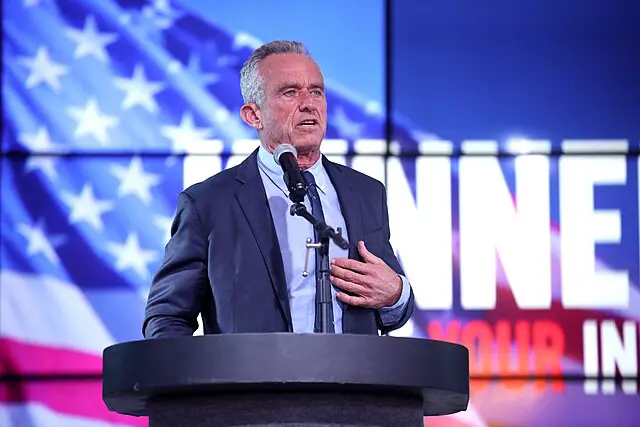Back in July, rumors started to fly that Robert F. Kennedy Jr. would be dipping out of the race for President and endorsing one of the remaining candidates. He noted that a big factor for him staying in the race was potentially reaching the 5% threshold with which he would earn the right to establish a party that receives public funds.
It became clear that this was impossible, though, so he started courting the remaining candidates and seeing who he could ally with. It’s unclear what the communications between RFK. Jr. and the Harris campaign were, but Donald Trump and Mr. Kennedy were quick to open up the conversation. Ultimately, RFK would drop out at the end of August and endorse Donald Trump. He said that he would be removing his name from the ballots in key swing states, while leaving his name on ballots that are not swing states like California.
Unfortunately for Donald Trump and Mr. Kennedy, this has not necessarily been the case. They’ve had to fight many court battles to get his name removed from the ballots, and even the U.S. Supreme Court has had to get involved in emergency cases like in Michigan and Wisconsin.
The U.S. Supreme Court just recently ruled that Robert F. Kennedy Jr. must remain on the ballots in Michigan and Wisconsin by rejecting an emergency appeal to scratch his name from the ballots in the two critical swing states. Mr. Kennedy’s legal argument was that his First Amendment was being violated by staying on the ballot since he publicly announced he was no longer seeking the Presidency.
The High Court did not provide public reasoning for their decisions in both the Wisconsin case and the Michigan case, but Justice Neil Gorsuch did dissent on the matter of Michigan. He was willing to hear the case that Kennedy should be removed from the Michigan ballots.
“In Wisconsin, he wants everyone who will listen to vote for Trump,” the Kennedy legal team said. “To aid that message, he sought to have his name removed from the ballot well before the Wisconsin Elections Commission voted to put him on the ballot and before the major parties even had to submit a candidate.”
The Supreme Court refuses RFK Jr's demand to be taken off the ballot in Wisconsin and Michigan.
Justice Neil Gorsuch publicly dissents in the Michigan case, but not Wisconsin https://t.co/f96t7BMhER pic.twitter.com/PnVK4lml5l
— Zach Schonfeld (@ZachASchonfeld) October 29, 2024
Kennedy was successful in removing his name from the ballots in North Carolina, Georgia, Arizona, and Nevada, all key swing states that Donald Trump is seeking to win to put pressure on the Kamala Harris campaign. A win in those states puts Harris in the position of trying to sweep all the Rust Belt states.
Early Voting Complicates Anything & Everything
Many Americans point to issues like these as examples why weeks-long voting is an inherently flawed system. You run into situations in which ballots are being printed with candidates who are not running anymore, which opens up the possibility for unintentional throw-away votes if voters happen to be unaware that their first pick is no longer running.
In fact, in the state of North Carolina, the state Supreme Court ruled that the state must destroy the ballots that had RFK Jr.’s name on them because he was no longer running for office. The new ballots would no longer have his name on them and RFK-interested voters would have to either sit this election out or vote for another candidate.
It seems odd to many Americans that some states were willing to comply with the request to remove RFK from the ballots, while other states decided to keep him on it for procedural reasons. That’s the concern with a weeks-long voting period.
Polls and surveys indicate that most Americans would prefer a single day when Americans go to cast their ballot. That, along with a more transparent ballot counting system that keeps Americans up-to-date in real-time rather than once every dozen hours or so when the election officials release new data.
The goal should be to make this as scientific as possible. At the end of the day, the elections must be counted and recounted in a transparent and scientific way that does not produce different results every single time it’s counted. The result should be the exact same, down to a single digit, every single recount. If you don’t have that, you don’t have a scientific election.
What do you think? Should early voting be ditched in favor of a single 24-hour election process? Let us know what you think in the comments below.


Until recently voting has been on a particular day. It should stay on that day!!! No later votes no write in votes.